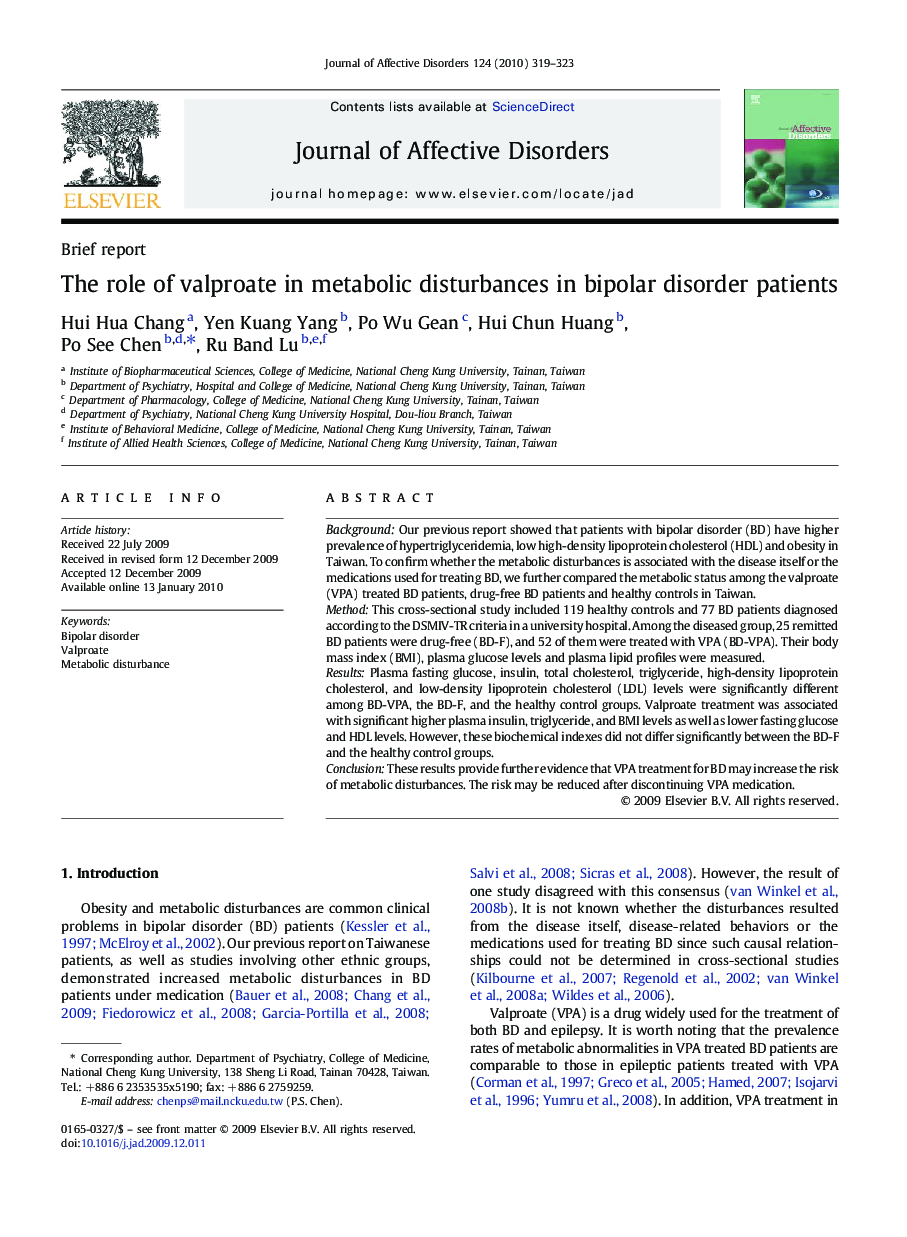| Article ID | Journal | Published Year | Pages | File Type |
|---|---|---|---|---|
| 4186748 | Journal of Affective Disorders | 2010 | 5 Pages |
BackgroundOur previous report showed that patients with bipolar disorder (BD) have higher prevalence of hypertriglyceridemia, low high-density lipoprotein cholesterol (HDL) and obesity in Taiwan. To confirm whether the metabolic disturbances is associated with the disease itself or the medications used for treating BD, we further compared the metabolic status among the valproate (VPA) treated BD patients, drug-free BD patients and healthy controls in Taiwan.MethodThis cross-sectional study included 119 healthy controls and 77 BD patients diagnosed according to the DSMIV-TR criteria in a university hospital. Among the diseased group, 25 remitted BD patients were drug-free (BD-F), and 52 of them were treated with VPA (BD-VPA). Their body mass index (BMI), plasma glucose levels and plasma lipid profiles were measured.ResultsPlasma fasting glucose, insulin, total cholesterol, triglyceride, high-density lipoprotein cholesterol, and low-density lipoprotein cholesterol (LDL) levels were significantly different among BD-VPA, the BD-F, and the healthy control groups. Valproate treatment was associated with significant higher plasma insulin, triglyceride, and BMI levels as well as lower fasting glucose and HDL levels. However, these biochemical indexes did not differ significantly between the BD-F and the healthy control groups.ConclusionThese results provide further evidence that VPA treatment for BD may increase the risk of metabolic disturbances. The risk may be reduced after discontinuing VPA medication.
